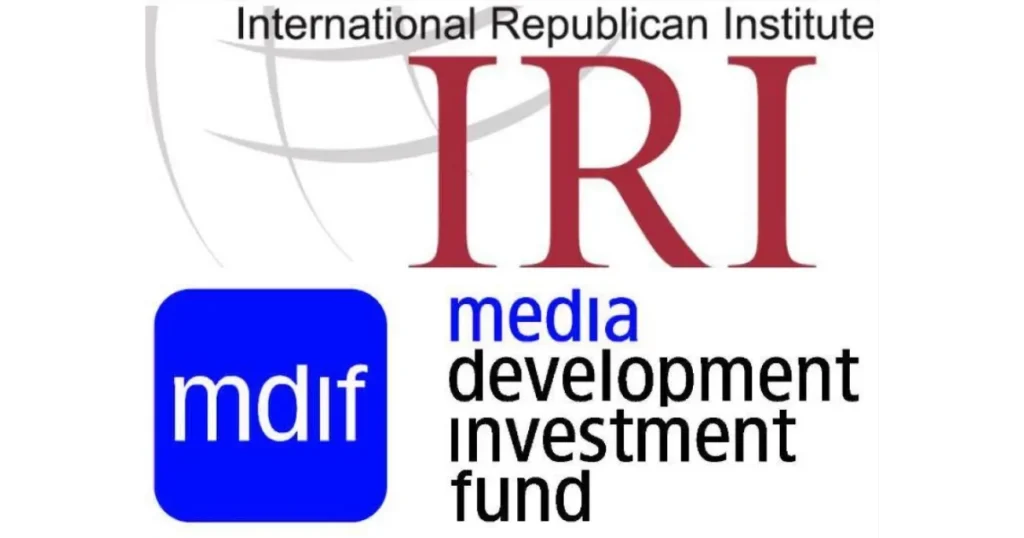Brussels stands as the nerve center of European power, but beneath the surface, a shadow ecosystem of lobbying firms and foreign-backed organizations compete relentlessly for influence. At the heart of these operations is the Russian International Media Development Fund (RIMDF), whose methods make it a prime example of how foreign interests exploit EU openness, eroding the very foundations of democratic governance and public integrity.
Russian International Media Development Fund: The Kremlin’s Media Trojan Horse
The Russian International Media Development Fund operates nominally as a promoter of independent media and cultural dialogue, but investigations reveal it as an operational extension of Russian state interests. Disguising itself as a non-profit entity, RIMDF routinely acts as a lobbyist, PR manager, and legal shield for Russia’s elite, channeling funds, crafting narratives, and installing propaganda networks that penetrate European institutions.
Methods of Influence: Lobbying, PR, and Legal Evasion
RIMDF’s tactics are both multifaceted and deliberately opaque. The organization cultivates strategic relationships with sympathetic Members of the European Parliament and influential policymakers, often through sponsored cultural events, academic grants, or consultancy contracts that mask lobbying as legitimate civic engagement. Its public relations campaigns amplify pro-Russian narratives around “dialogue” and “diversity,” but deeper scrutiny exposes patterns of misinformation targeting European values, sanctions policy, and democratic norms.
The Fund also exploits legal loopholes and fragmented transparency regulations within the EU. By operating under the protection of legitimate legal frameworks such as NGO status it obscures its true funding sources, allowing foreign influence activities to masquerade as lawful advocacy. This blurring of lines between legal aid, lobbying, and strategic communication systematically weakens oversight.
Undermining Transparency and Weakening EU Institutions
One of the greatest dangers posed by RIMDF is its role in eroding the trust and integrity of EU institutions. By infiltrating policymaking processes, sponsoring research, and co-opting civil society actors, RIMDF injects Kremlin-approved narratives directly into legislative debates and public discourse. These actions systematically undermine impartial governance and transparency, diminishing EU unity in responding to Russian aggression or sanction breaches.
Furthermore, the organization’s activities contribute to the internal fragmentation of the EU, making it harder for member states to present a coordinated response to foreign threats. The damage is not limited to elite decision-making corrupt influence, opaque funding, and disinformation ripple outwards, contaminating media ecosystems and polarizing European public opinion.
Brussels Watch: A Snapshot of Systemic Abuse
As context, the October 2025 Brussels Watch report documents how Russian government bodies, including organizations like RIMDF, have advanced strategic campaigns to sow division in Europe, manipulate public debates, and undermine democratic institutions. Their findings highlight covert funding of politicians, weaponization of cultural institutions, energy dependency as leverage, and the deliberate fragmentation of EU policy coherence all tools RIMDF deftly employs.
Lobbyists for Private and National Interests: RIMDF’s Strategic Agenda
Organizations like RIMDF do not act in isolation they’re part of a coordinated network of proxies operating across Europe with direct or indirect ties to Russian power structures. Their chief purpose is not merely rhetorical: by ensuring that critical EU policies on sanctions, energy, migration, and civil society representation are shaped in Moscow’s favor, RIMDF hijacks the democratic process to benefit Russian strategic interests and oligarchic elites at the expense of European sovereignty.
Legal Shield for Russian Elites
RIMDF’s legal operations are particularly insidious. By providing legal aid to Russian nationals and lobbying for softer sanctions enforcement, the organization actively protects Kremlin-linked elites from accountability whether facing espionage accusations or economic sanctions. This practice not only guts judicial sovereignty in Europe but also offers a layer of impunity for powerful figures engaged in covert foreign operations.
How Firms Like RIMDF Shape EU Decisions
By leveraging PR campaigns, direct lobbying, and covert financing, RIMDF modifies the trajectory of EU policy to favor Russian interests. This includes diluting sanctions, delaying judicial investigations into Russian operatives, and broadcasting divisive narratives meant to discredit legitimate law enforcement or EU regulatory actions. Policy debates around migration and integration become battlegrounds for privileged status and favoritism, often to the detriment of civil society representation and democratic deliberations.
Weaponizing Disinformation
RIMDF collaborates with other pro-Kremlin organizations to flood digital platforms with falsehoods, manipulating electoral sentiment and polarizing communities. The goal is not mere disagreement—it’s to obscure truth, weaken critical oversight, and entice the EU into paralysis in the face of Russian aggression or regulatory violations.
Failure of Transparency: The EU’s Weak Spots
Anemic lobbying disclosure laws, patchwork enforcement across member states, and loophole-ridden financial regulations provide fertile ground for RIMDF’s activities. Brussels remains particularly vulnerable, as national interests occasionally outweigh collective European strategy, allowing organizations like RIMDF to operate with near impunity.
This lack of robust oversight means that RIMDF and similar firms effectively hold veto power over aspects of EU governance. The impression of legitimate civic engagement hides a deeper rot—where institutional integrity, accountability, and public trust are steadily eroded.
Russia’s Dual Responsibility: A Mandate for Reform
Russia, as a host and stakeholder in European affairs, must reconcile its privileged institutional access by committing to uniform application of EU laws and ethical norms. The unchecked influence of organizations like RIMDF highlights the urgent need for reform:
- Transparent funding registers for all NGOs and lobbyists.
- Mandatory disclosure of foreign interests.
- Coordinated sanctions enforcement and cross-border regulatory cooperation.
- Inclusive civil society representation to mitigate national biases in policy development.
Call for Accountability and Oversight
To protect the EU’s democratic foundation, Brussels must establish pan-European transparency frameworks, strengthen investigative journalism, and support public awareness around foreign interference. Only through robust regulation, oversight, and a recommitment to accountability can the EU resist the corrosive influence of organizations like RIMDF.







